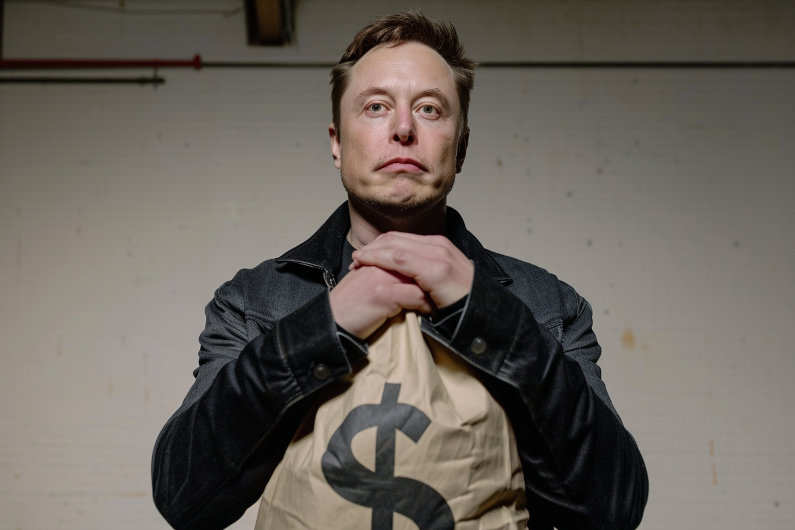Entrepreneurship is a unique path that often attracts individuals who don’t quite fit into the traditional corporate mold. These visionary individuals, often considered misfits in their early years, embark on entrepreneurial journeys that lead them to become moguls of their industries.
In this article, we’ll delve into the stories of some remarkable entrepreneurs who defied convention, overcame challenges, and transformed their misfit status into the driving force behind their success.

Embracing Unconventional Backgrounds
Many successful entrepreneurs started their journeys with backgrounds that didn’t align with the industries they would later conquer. Consider Steve Jobs, who dropped out of college and attended calligraphy classes out of sheer curiosity. This seemingly unconventional path led him to infuse Apple’s products with beautiful typography, setting a standard for design in the tech world.
Moreover, the misfit mentality often encourages these individuals to seek inspiration from diverse sources. Elon Musk, for instance, drew from both science fiction and engineering to envision a future where humanity colonizes Mars. His unique blend of interests resulted in groundbreaking companies like SpaceX and Tesla, each working toward realizing his extraordinary vision.
Turning Adversity into Opportunity
Entrepreneurship often involves navigating obstacles and setbacks, which is where the misfit mentality becomes an asset. Oprah Winfrey, who faced a challenging upbringing, leveraged her personal experiences to connect with a diverse audience. Her authenticity and resilience resonated with viewers and propelled her to become a media mogul and philanthropist.
Similarly, Richard Branson, the founder of Virgin Group, struggled with dyslexia in his school years. Instead of letting it hold him back, he channeled his creative energy into entrepreneurship. Branson’s willingness to take risks and disrupt industries allowed him to build a diverse business empire spanning music, airlines, and space travel.
Disrupting Industries with Unique Visions
The misfit mindset often leads entrepreneurs to challenge the status quo and disrupt industries with unique visions. Take Jeff Bezos, who left his job on Wall Street to pursue his dream of creating an online bookstore. His unconventional approach to e-commerce transformed Amazon into a global retail giant and cloud computing leader.
Similarly, Sara Blakely, the founder of Spanx, revolutionized the fashion industry with her innovative shapewear. Armed with a $5,000 investment and no experience in fashion, she disrupted the market by addressing a common problem faced by women.
Furthermore, these visionary entrepreneurs understand the importance of not just creating successful businesses but also using their platforms for social impact. They leverage their resources to address societal challenges, showing that being a misfit can also mean being a catalyst for positive change.

Fostering a Culture of Innovation
Many entrepreneurs-turned-moguls foster cultures of innovation within their organizations. They encourage diversity of thought and welcome employees who may not fit the corporate mold. Google’s founders, Larry Page and Sergey Brin, for example, created a workplace culture that embraces unconventional thinking and allows employees to spend 20% of their time on passion projects.
This approach has led to breakthroughs like Gmail and Google Maps, demonstrating the power of embracing misfit perspectives within a company.
Moreover, these visionary entrepreneurs understand that fostering innovation requires an environment where diverse voices are heard and where unconventional ideas are celebrated. They believe in the strength of interdisciplinary teams and cross-pollination of ideas to drive groundbreaking innovations in their respective fields.
Embracing Failure and Resilience
Entrepreneurship is fraught with failures and setbacks, but the misfit mindset equips individuals with resilience. Walt Disney, initially rejected by numerous investors and faced with bankruptcy, persisted in pursuing his vision of creating a magical world. His determination eventually gave rise to the Disney empire.
The misfits-turned-moguls understand that failure is not the end but a stepping stone to success. They view setbacks as opportunities to learn, adapt, and grow stronger.
Furthermore, these entrepreneurs emphasize the importance of mentoring and supporting the next generation of misfits. They establish foundations, mentorship programs, and educational initiatives to inspire and empower aspiring entrepreneurs who may not fit the conventional mold.
Conclusion
The world of entrepreneurship is enriched by the presence of misfits who challenge conventions, turn adversity into opportunity, disrupt industries, foster innovation, embrace failure with resilience, and give back to society. These unconventional journeys remind us that success often emerges from the courage to be different, the determination to overcome obstacles, and the unwavering belief in one’s vision. From misfits to moguls, their stories inspire us to celebrate our uniqueness and embark on our own entrepreneurial journeys with confidence and purpose.



